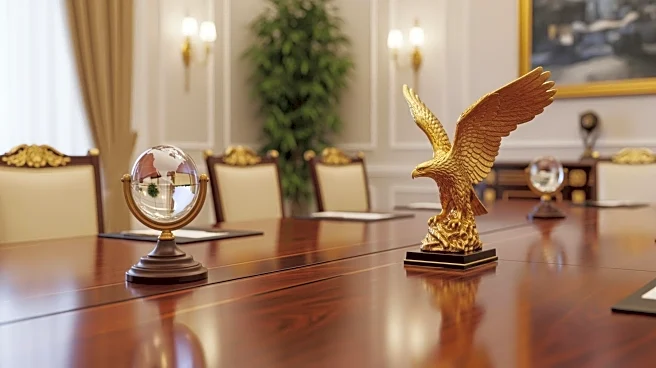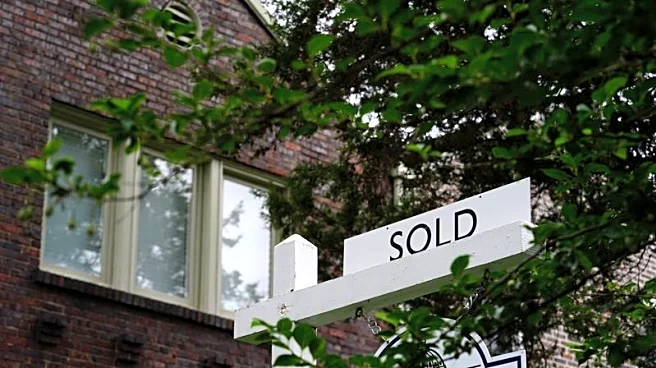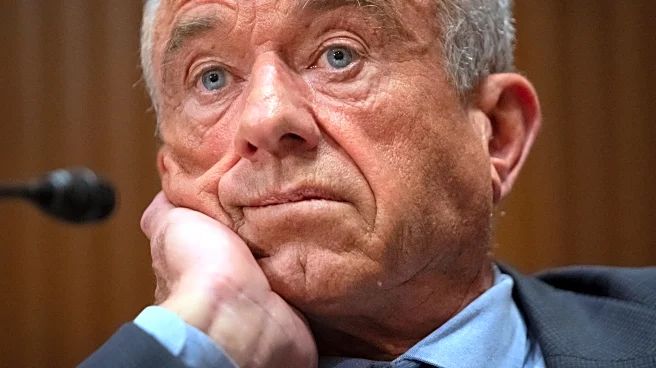What's Happening?
President Donald Trump's administration is preparing for a visit by Saudi Crown Prince Mohammed bin Salman to the United States next month. This visit, tentatively scheduled for November 17-19, could mark
the first state visit by a foreign leader during Trump's second term. The visit aims to restore relations with Gulf Arab nations, particularly following tensions due to Israel's attack on Hamas leaders in Qatar. The trip is expected to include the signing of various agreements, potentially covering commercial and trade deals under a Strategic Economic Partnership framework. Discussions may also involve a bilateral security deal, which Saudi Arabia has long sought. The visit follows efforts by both the Trump and Biden administrations to mend ties with Saudi Arabia after the killing of Washington Post columnist Jamal Khashoggi in 2018, an incident U.S. intelligence agencies linked to Prince Mohammed.
Why It's Important?
The visit of Crown Prince Mohammed bin Salman to the U.S. is significant for several reasons. It represents a strategic effort by President Trump to strengthen ties with Gulf Arab nations, which have been strained due to regional conflicts and diplomatic challenges. The potential agreements could enhance economic and military cooperation between the U.S. and Saudi Arabia, impacting industries such as defense and energy. Additionally, the visit could influence the geopolitical landscape, particularly in relation to the Abraham Accords and the ongoing conflict in Gaza. The visit also highlights the ongoing diplomatic efforts to rehabilitate Saudi Arabia's global image following the Khashoggi incident, which had led to international scrutiny and sanctions.
What's Next?
The visit could lead to the signing of significant agreements that may reshape U.S.-Saudi relations. The potential inclusion of Saudi Arabia in the Abraham Accords could be revisited, especially in light of the fragile ceasefire in Gaza. The bilateral security deal under discussion could further solidify military cooperation between the two nations. Stakeholders, including political leaders and businesses, will likely monitor the outcomes of the visit closely, as they could have far-reaching implications for regional stability and economic partnerships. The White House and Saudi Embassy have not commented on the visit, leaving room for speculation on the final agenda and agreements.
Beyond the Headlines
The visit underscores the complex ethical and diplomatic challenges in U.S.-Saudi relations, particularly in balancing strategic interests with human rights concerns. The rehabilitation of Prince Mohammed's image and the potential security assurances to Saudi Arabia reflect broader geopolitical shifts and the prioritization of strategic alliances over past controversies. The visit may also influence cultural perceptions and diplomatic strategies in the Middle East, as the U.S. navigates its role in regional conflicts and alliances.











